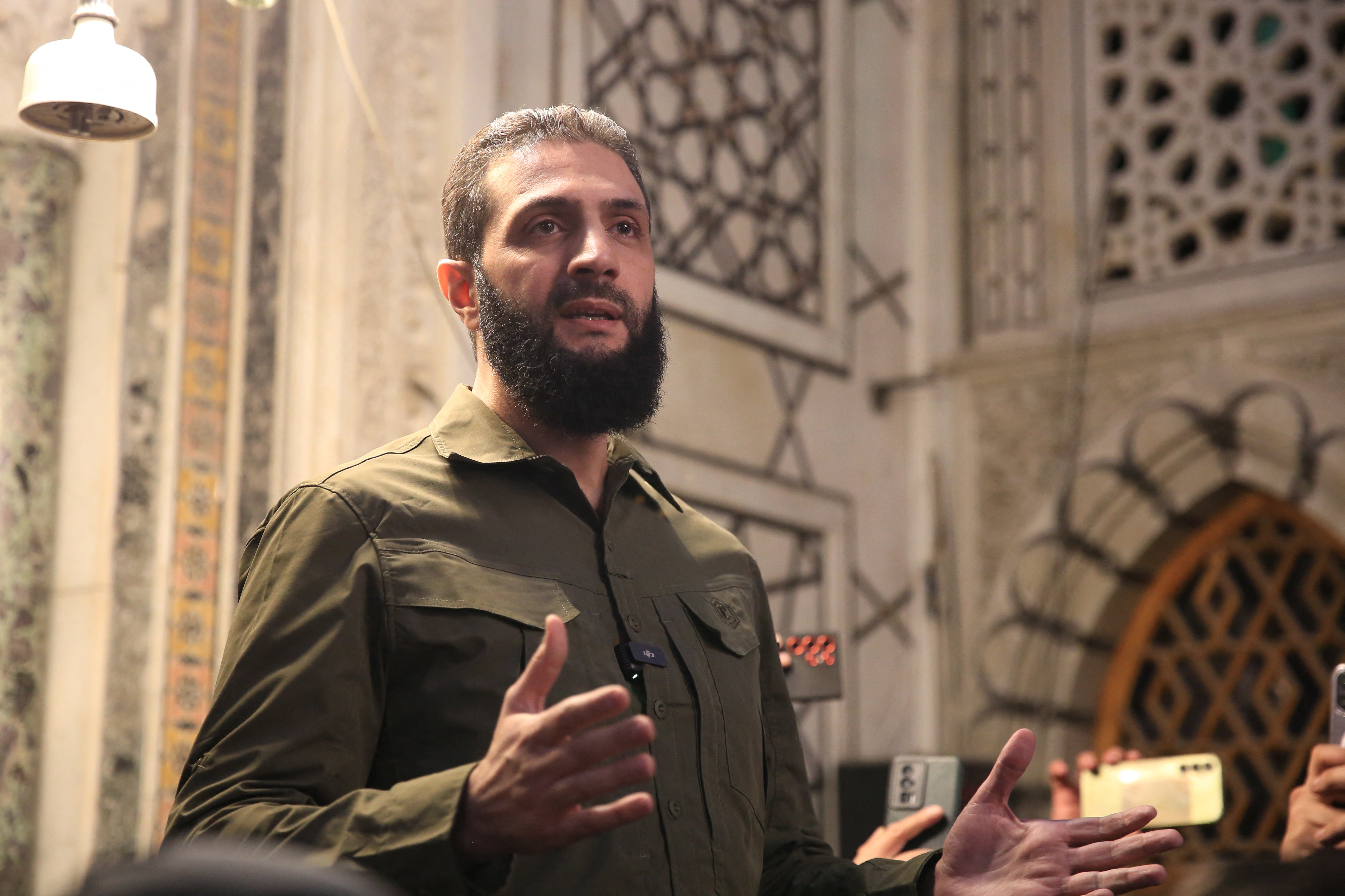Syrian rebel leader promises stability despite concerns of further violence
Syrian rebel leader Abu Mohammed al Jolani says Western fears about future instability are unnecessary

Your support helps us to tell the story
From reproductive rights to climate change to Big Tech, The Independent is on the ground when the story is developing. Whether it's investigating the financials of Elon Musk's pro-Trump PAC or producing our latest documentary, 'The A Word', which shines a light on the American women fighting for reproductive rights, we know how important it is to parse out the facts from the messaging.
At such a critical moment in US history, we need reporters on the ground. Your donation allows us to keep sending journalists to speak to both sides of the story.
The Independent is trusted by Americans across the entire political spectrum. And unlike many other quality news outlets, we choose not to lock Americans out of our reporting and analysis with paywalls. We believe quality journalism should be available to everyone, paid for by those who can afford it.
Your support makes all the difference.Syria is heading towards stability and Western fears of future chaos and violence are unfounded, the leader of the rebel group who ousted Bashar Al-Assad’s regime has claimed.
While Western governments have celebrated the swift toppling of the Assad regime after decades of harsh rule, concerns remain about the future of Syria and the possibility of a power vacuum.
But in his first comments to a Western news organisation, Abu Mohammed al Jolani, the head of Hayat Tahrir al Sham (HTS), told Sky News that there will be “no return to panic” now that they have overthrown the oppressive Assad regime.
“The country will be rebuilt,” he said. “The fear was from the presence of the regime. The country is moving towards development and reconstruction. It’s going towards stability.
“People are exhausted from war. So the country isn’t ready for another one and it’s not going to get into another one.
“The source of our fears was from the Iranian militias, Hezbollah and the regime which committed the massacres we are seeing today.
“So their removal is the solution for Syria. The current situation won’t allow for a return to panic.”
Mr Al Jolani remains a designated terrorist by the US, while his group HTS is proscribed in the UK, but after the rebels swept through Syria was largely welcomed by civilians, Western governments are believed to be reconsidering their approach.
There have been discussions about whether Western countries will lift their terrorist label of Mr Al Jolani and his HTS group.
Under Mr Al Jolani, HTS has spent years trying to distance itself from former ties to al Qaeda. The rebel leader says he has renounced his past as an extremist and now embraces pluralism and tolerance.
The situation in Syria has remained relatively stable since the shock offensive.
In the Syrian capital of Damascus, banks have reopened for the first time since Assad’s overthrow. Shops were also reopening, traffic returned to the roads, construction workers were back fixing a roundabout in the city centre and street cleaners were out sweeping the streets.
There was a notable decrease in the number of armed men on the streets. Two sources close to the rebels said their command had ordered fighters to withdraw from cities, and for police and internal security forces affiliated with the main rebel group Hayat Tahrir al-Shams (HTS) to deploy there.
Earlier on Tuesday, Mohammed al-Bashir, a figure little known across most of Syria, said in a brief address on state television that he would lead an interim authority in the country until 1 March.
He previously ran an administration in a small pocket of the northwest controlled by rebels.
“Today we held a cabinet meeting that included a team from the Salvation government that was working in Idlib and its vicinity, and the government of the ousted regime,” he said.
“The meeting was under the headline of transferring the files and institutions to caretake the government.”
The European Union’s new foreign policy chief, former Estonian prime minister Kaja Kallas, however, said there remains legitimate concerns about the risks of sectarian violence in Syria and a resurgence of extremism in the country.
Join our commenting forum
Join thought-provoking conversations, follow other Independent readers and see their replies
Comments